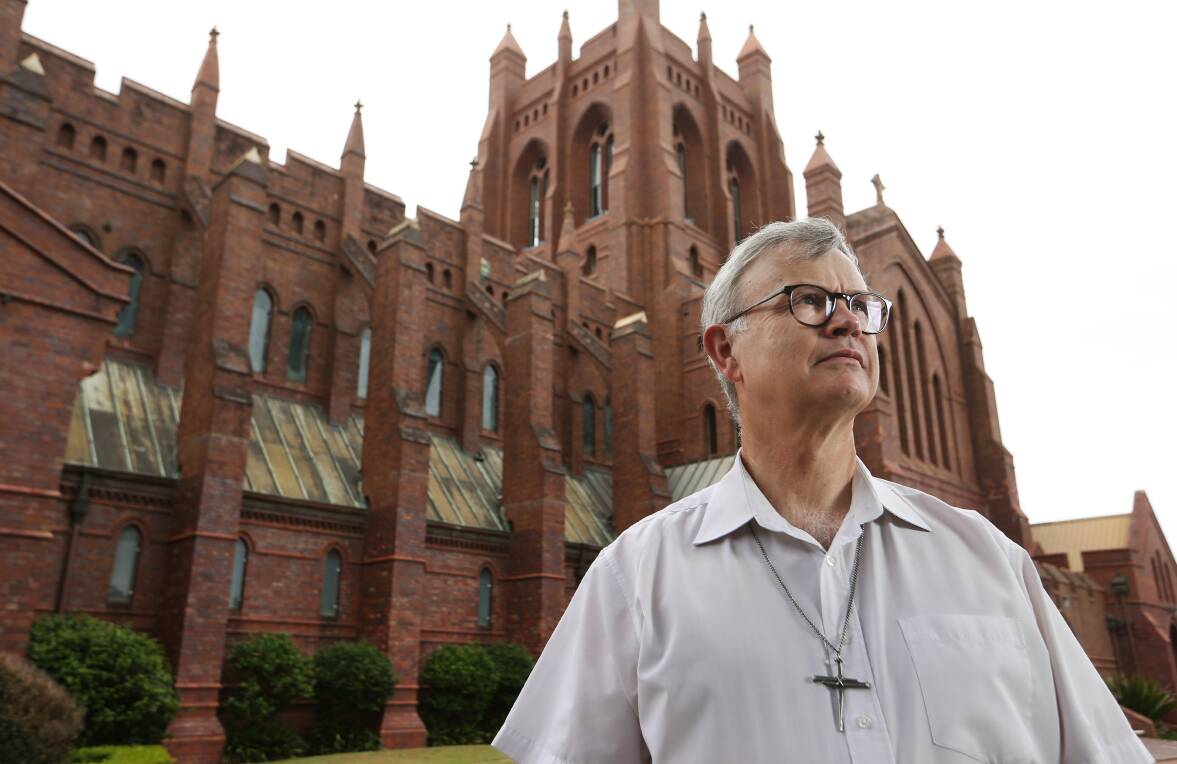
The most senior Anglican in the Newcastle Diocese - the Bishop, Dr Peter Stuart - has revealed on the eve of Easter that he has prostate cancer.
In an exclusive column in the Newcastle Herald, Dr Stuart said that while the prognosis is favourable, according to advice from his doctors, the diagnosis was difficult for him and his family.
The Bishop now faces a six-week to six-month intensive radiation treatment schedule beginning in May, but he was confident that he would maintain his regular commitments as the leader of the 175-year-old Diocese that serves the faithful of Newcastle, the broader Hunter region, and the Central Coast, albeit at a "scaled-back" capacity.
"I should be able to go about doing all my ordinary work without interruption," Dr Stuart told the Herald on Thursday afternoon. I might feel a little bit fatigued ... so what I am doing is scaling back a few things and prioritising my work around the really important things that I have to do in my role.
"At the moment I am planning to continue all of my duties and if I need to take some time, I have a great team around me.
"I want to be sensible, and if I need to take a week off, I will take sick leave like everyone else."
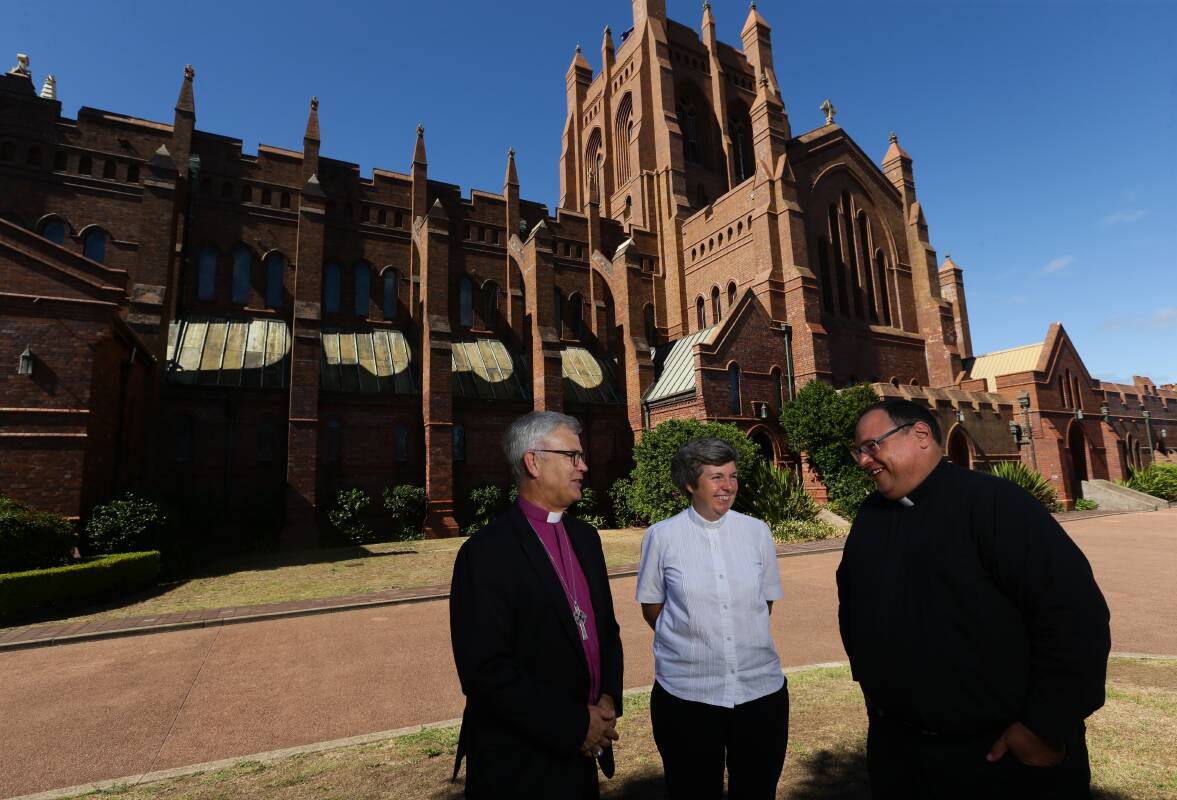
Dr Stuart was diagnosed in the past few weeks, he said, after seeing his GP about his annual prostate screening, which was referred to a urologist and later for an MRI and biopsy. The Bishop said he had been diagnosed with "intermediate localised prostate cancer" - one of the most common cancer diagnoses for men - and had been given the option of surgery or radiation treatments.
Dr Stuart said he was feeling confident about the success of his impending treatment and had been given positive signs by his doctors, but the news had caused some concern for himself and his family. He said revealing the diagnosis publicly felt like an important responsibility given his vocation, as well as to advocate for men over 45 to seek regular screenings.
"A couple of things that came out of (the diagnosis) for me already were amazing gratitude for the science," he said, "A couple of years ago, I did Movember to encourage prostate cancer research, never dreaming that I'd be one of the people who so quickly might be on the receiving end of that.
"The reason I'm talking about all of this is to encourage men, especially men over 45, to be getting a regular PSA test and having a conversation with their doctor about it.
"I want to encourage men to talk about it."
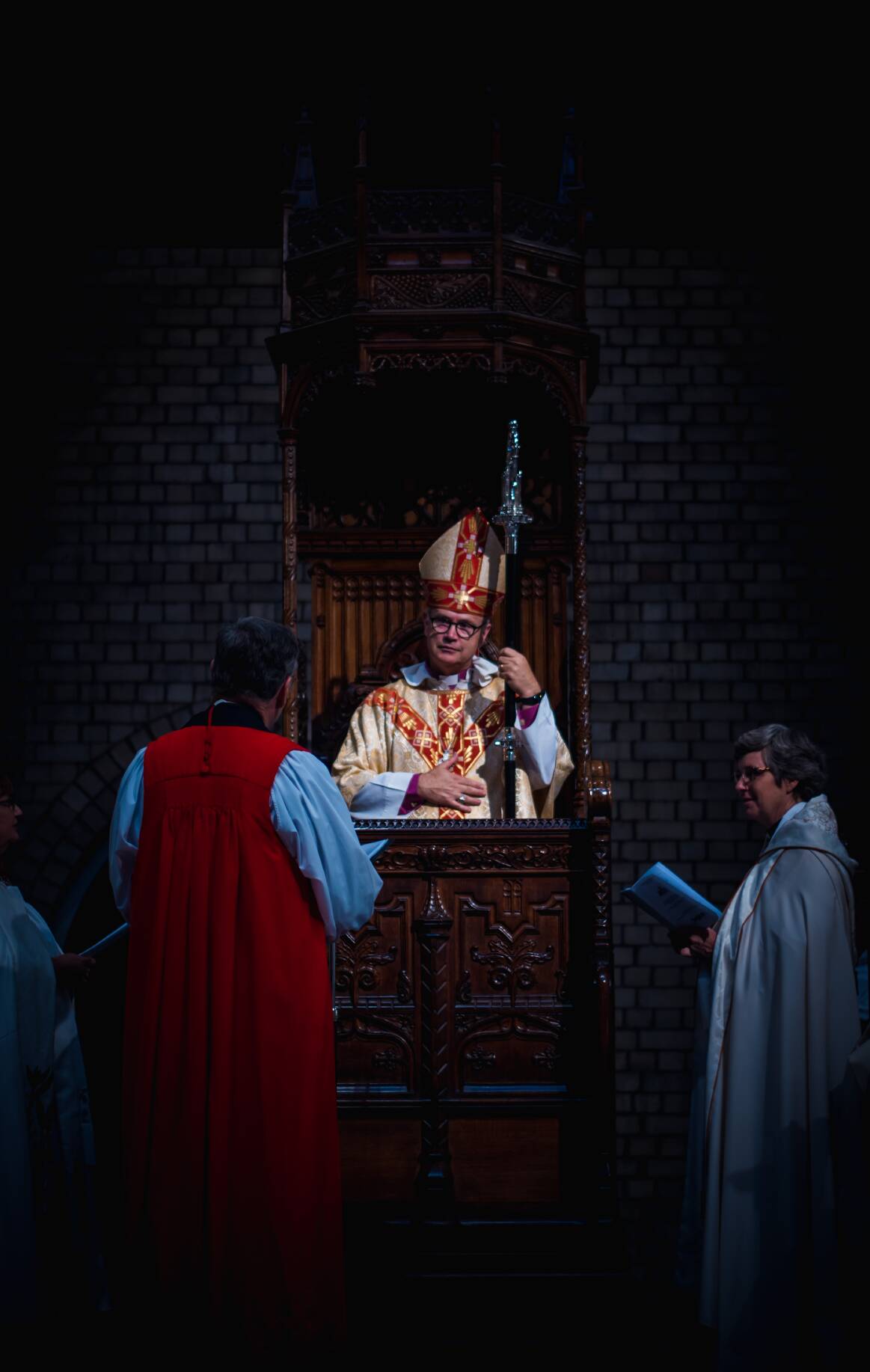
Dr Stuart is the second of Newcastle's church leaders to be diagnosed with cancer after the Catholic Bishop of Maitland and Newcastle, Bill Wright, died of lung cancer on November 13, 2021. He was 69.
"I think what Bishop Bill wanted to do for his community and what I want to do for mine is to be honest about our humanity and our life experience and to help people, whether they be Christians or the broader community, understand that all of our life is shaped by the reality that we can get ill and one day we will all die," Dr Stuart said, "And in and around that, we always have a choice about how we will live, how we will care for those who are close to us, how we will make a difference."
Dr Stuart said he had been spending a lot of time speaking with his wife and adult children about his diagnosis and had been overwhelmed by the support of his colleagues within the church and his parishioners.
"It's been deeply moving to hear from clergy and parishioners. Nearly every day, there's been a new card on the desk at work or an email from people, clergy, who've quietly come up to me and said 'We care, we're praying for you'," he said, "There is something amazing about being part of the church community when the church community is working well, they are places of great care and great love and great support, and I've certainly felt that."
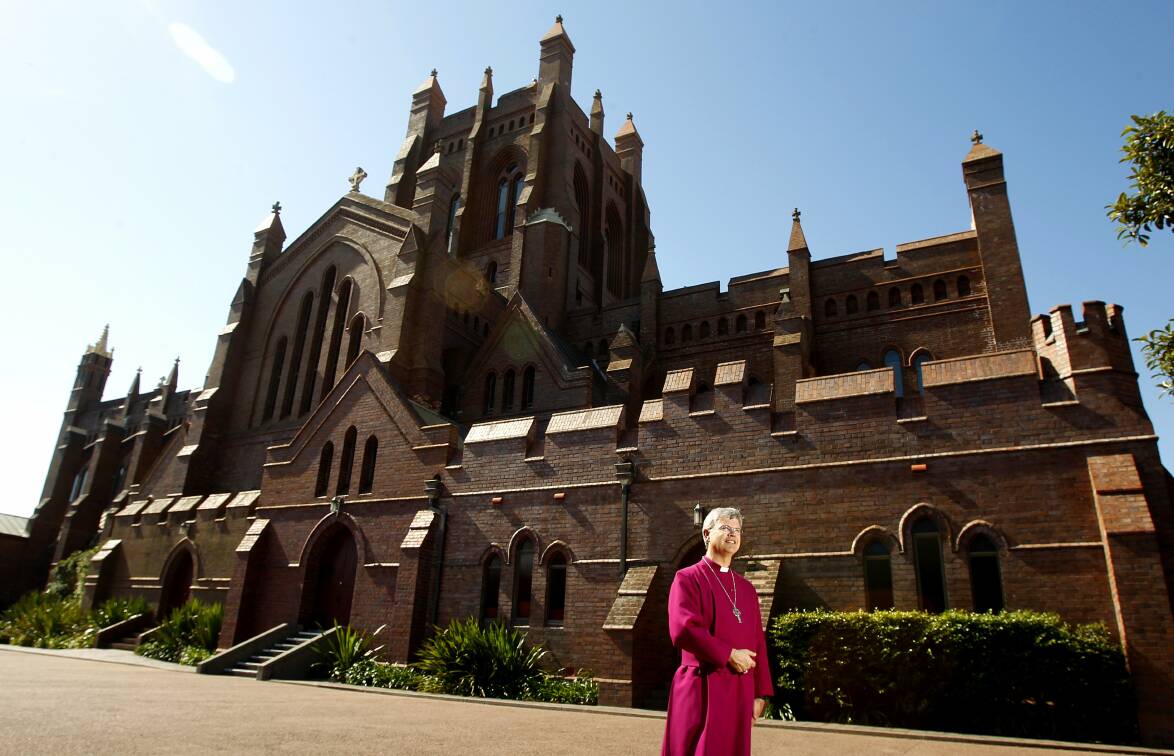
Dr Stuart, who has led the Anglican Diocese for six years after he was elected in November 2017 and officially installed the following February, used his Easter message in the pages of this masthead to reflect on his diagnosis and how his faith had informed and guided him and his family through the process.
"We make choices about our careers, how we want to share things with a partner, and how we want to do things for our kids, and that our footprint on the world might be a good one. And I think that is our common humanity - whether we are religious or not," he said. As a Christian and a person of faith, I have found that resources of my faith have helped me manage what can be a scary journey."
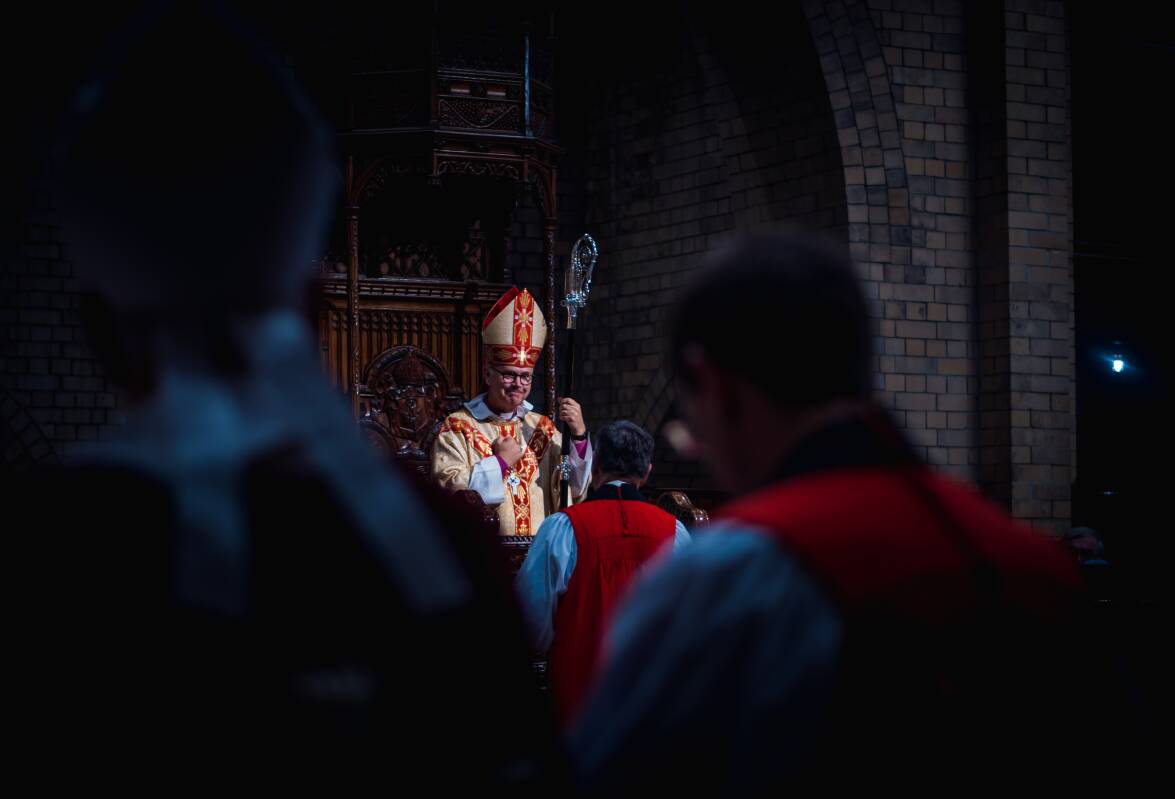
Dr Stuart's tenure leading the Newcastle Diocese - the epicentre of a 2017 Royal Commission into institutional child abuse - has been marked by moments of progressive reform and scandal.
In February last year, Dr Stuart backed the state legislative push banning gay conversion therapies in NSW and, a year earlier, hit out against conservative voices within the church denouncing same-sex marriage and the ordination of women.
But the church, and its broader organisation, has also come under intense scrutiny over the past four years after reports of extreme negligence at one of the Diocese's aged care locations in Taree.
Staff there told the Herald last year that their complaints about systemic failings in the facility - including patient ratios, a lack of clinical oversight, clinical and personal care, and wound and pain management - had gone unaddressed for years.
During a site audit in January last year, the Aged Care Quality and Safety Commission found nearly 120 nursing and care shifts had not been filled in the four weeks leading up to January 16, 2023.
An "unexpected death" and residents left writhing in pain without receiving prescribed medication - sometimes for days on end, without clinical care, were just some of the issues the commission identified as its findings stop just short of revoking Anglican Care's licence to run its Taree service.
In a 2020 letter of apology, Dr Stuart said staff were working tirelessly to ensure compliance with aged care standards and were "addressing our shortcomings".







